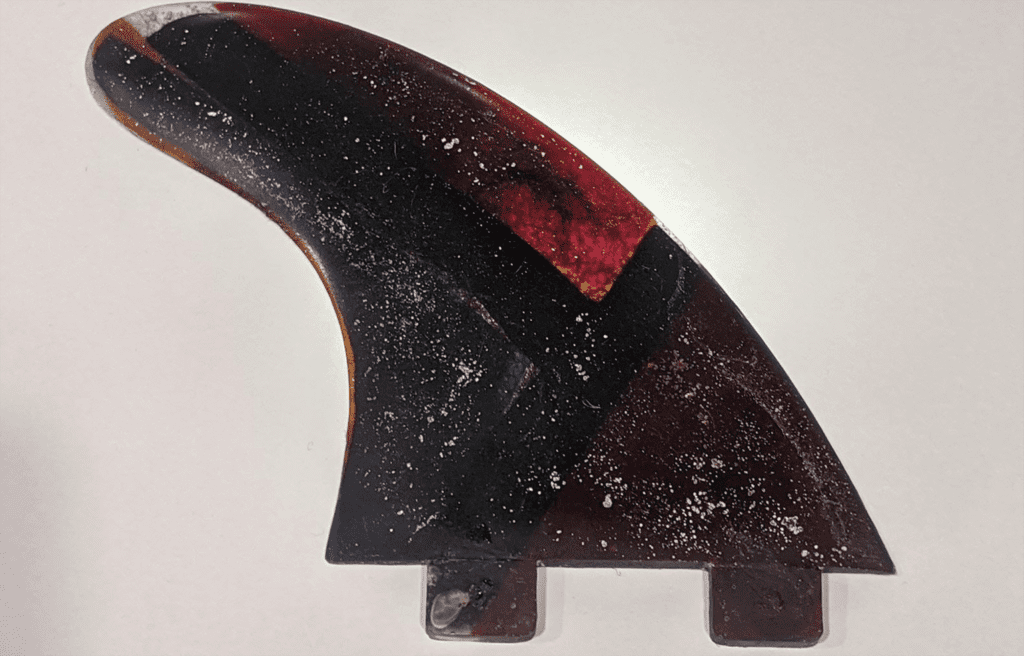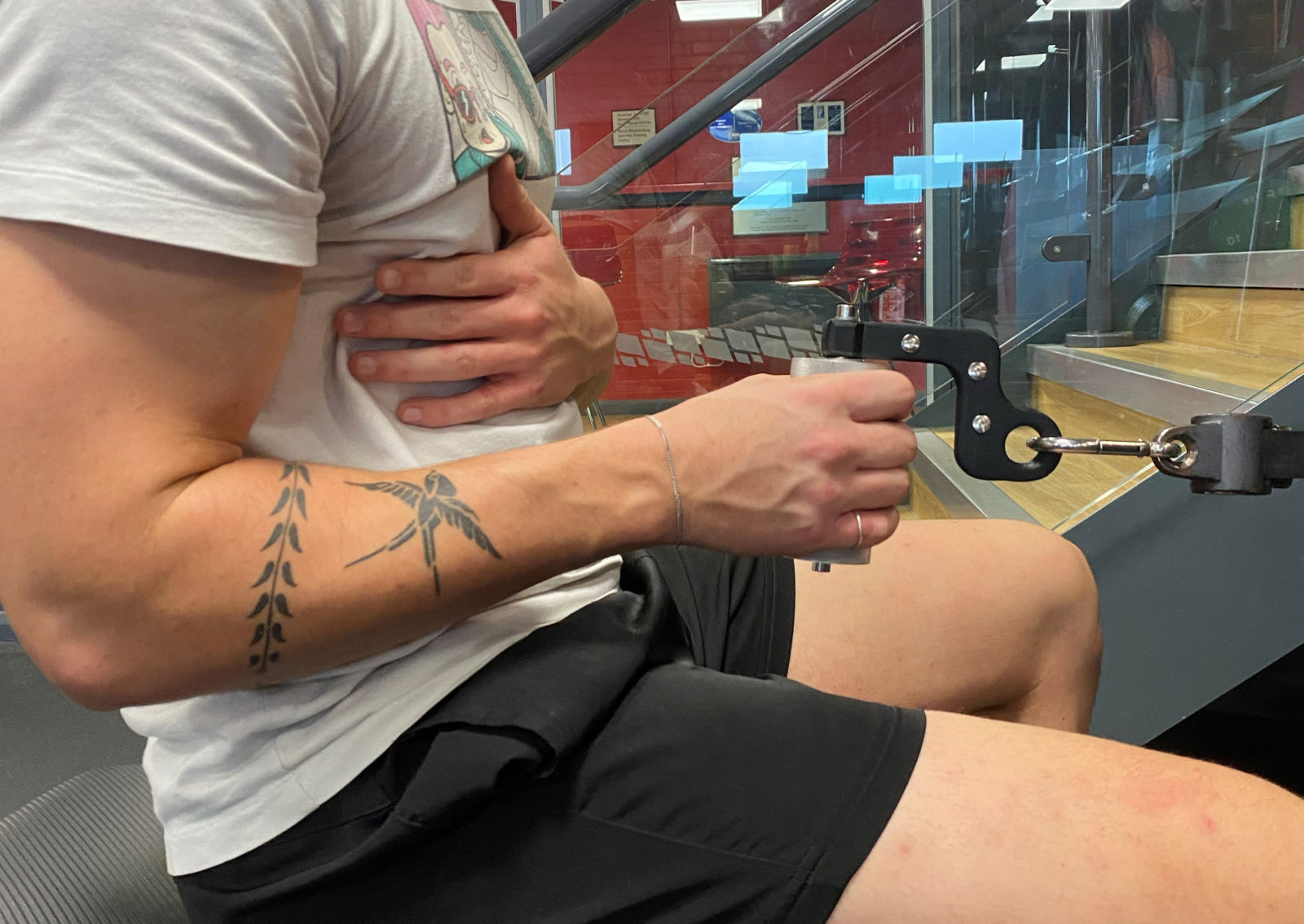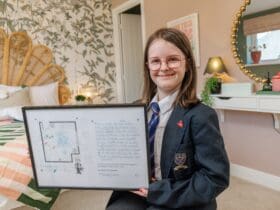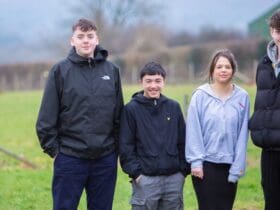Tasked by a Welsh Government funded project ‘Made with Wool’, Product Design students at Bangor University accepted their challenge to create innovative products using Welsh Wool which included mountain bike mudguards, surfboard fins and fruit bowls.
The project which is looking to realise the potential of wool as a natural, sustainable, and versatile material challenged the student to produce either a new product or to consider wool as a substitute material for existing products
Bryn Richards from Lincolnshire designed gym handle attachments which showcases the literal strength of wool.
Bryn explained, “The body of the grips are created by compressing resin to Welsh wool in a two-part mould to construct a strong woven material. The two halves are then glued and bolted to create a strong handle. This project has enabled me to research my business venture, Malosi Gym Equipment, which is in its early stages, but I hope to take my product to the manufacturing stage after I complete my degree.”
Leanne Melia from Leicester combined wool with seaweed from the local area to create a sustainable and compostable plastic alternative.


Leanne said, “By breaking seaweed down and layering the wool together, it gives the material a composite structure which provides strength and durability. Adding a thin layer of epoxy makes the material water resistant and food safe, meaning it has even more uses. This process could be used for all sorts of day-to-day products and I focussed on kitchen items, specifically a fruit bowl. I’ve never worked with wool or seaweed, so the project has made me appreciate that any material can become something else, and products can be created out of virtually any material. Wool is in abundance, and this project has proved it can have a different purpose and can be a versatile and sustainable material.”


A keen surfer, Gwion Roberts from Waunfawr, developed a surfboard fin, he explained, “Wool was combined with epoxy and placed in a mould to create a fin with similar properties to its carbon and glass fibre counterparts. As one man’s trash is another man’s treasure, using wool as an alternative material could help manufacturing in more rural areas as it is readily available.”
Made with Wool is a Welsh Government funded pan-Wales project delivered by Menter Môn, bringing together an extensive network of stakeholders that represent every part of the wool supply chain. The project was designed with the aim of bringing Welsh Wool stakeholders together to realise the potential of wool as a natural, sustainable, and versatile material, by building on its rich heritage, enhancing understanding, facilitating collaboration and offering innovative product solutions to current challenges.
Aled Williams, lecturer in product design and project leader, said, “This was a great opportunity for our students to not only explore modern manufacturing processes within our workshop but to work on a live brief which has a national reach as part of their agenda.”
Elen Parry, Made with Wool project manager, said, “The cost of sheering has been higher than the price farmers get for fleece for some time. With an increased awareness of environmental and climate issues, we urgently need to look at new ways of using natural materials such as wool to create sustainable products. Bangor Product Design students have come up with ingenious ideas which will showcase Welsh wool as a diverse and sustainable biproduct which can be developed to meet future commercial production needs.”









Leave a Reply
View Comments